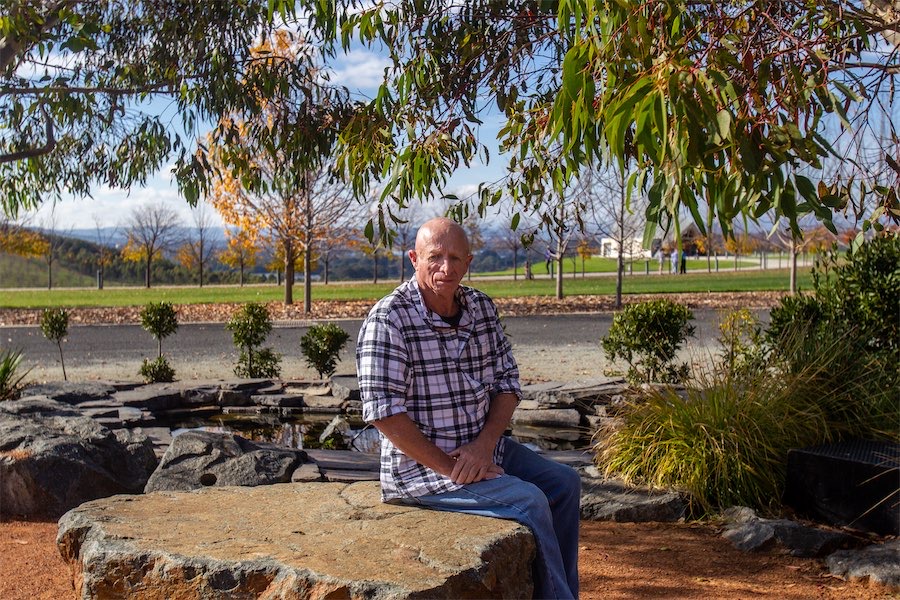According to the Australian Bureau of Statistics, deaths from AIDS-related illnesses peaked in 1994, with 764 Australians dying.
Thirty years on, the community’s understanding about HIV and AIDS has dramatically changed and new antiviral treatments have seen numbers plummet.
But, for 2023 ACT Volunteer of the Year, iconic Canberra drag queen and AIDS advocate Richard Allen, it is important that those who lost their lives are remembered.
“When I first was confronted at ward 17, St. Vincent’s Hospital, it was horrible, absolutely horrid,” he says.
“They’ve lost all their body fat, they’re all drawn in the face.
“Even my partner Kimbo, when I saw him, he wasn’t the man I knew.”
Richard has been living with HIV for 34 years, but his partner, Kimbo, died in 1994.
“The nurses weren’t even going into the room to the patients, it was us,” he says.
“It was so sad, and I thought, what can I do to show that they’re no different than anyone else, they’re human, they’re our sons, they’re our daughters, they’re our lovers, our partners?”
So, Richard began the long process of creating the AIDS Garden of Reflection, at the National Arboretum.
“I went through trying to find out what location we can have it, where can it be built, how can we build it? Where is the funding coming from?” he says.
“Back then [the arboretum] wasn’t here, we’re talking about 1996, that’s how long ago this was in the making.”
Unfortunately, as momentum began to build, Richard had to be taken to Sydney for treatment, as the virus temporarily “got the better of him”, forcing him to let the project die.
“When I got back on my feet… then I wrote a letter to the chief minister and I wrote to the AIDS Action Council [now Meridian] and I let them know this is what I wanted to do,” says Richard.
“They gave me 110 per cent all the way. I couldn’t fault them in any shape or form.”
An enormous community drive for funding was started, eventually raising $190,000.
“A year or two before it was designed or built, we found out we couldn’t use memorial in our title, we’d have to go through the prime minister’s office.
“I just said to myself, I don’t really want to go through all this crap again… so a friend of mine came up with a suggestion: ‘Why don’t you call it a garden of reflection?’
“So it became a garden of reflection.”
Richard says he wants more Canberrans to know and understand the history of the garden, which opened in April, 2017.
Referring to the Canberrans who died, Richard says: “I know who they all are. They’re all my friends.”
“I come here and I see them. I know they’re here, although I know they’re not buried here or anything, their spirits are here, because this is their garden, this is their home.
“This is where the community needs to understand, come to the garden to remember them, because they went before their time.
Importantly, the garden is for everyone and anyone, says Richard, which is why he chose to not include his name on the plaque.
“I didn’t want the recognition, it was for the community,” he says.
“I’ve got my legacy, I’m happy.”
Who can be trusted?
In a world of spin and confusion, there’s never been a more important time to support independent journalism in Canberra.
If you trust our work online and want to enforce the power of independent voices, I invite you to make a small contribution.
Every dollar of support is invested back into our journalism to help keep citynews.com.au strong and free.
Thank you,
Ian Meikle, editor

